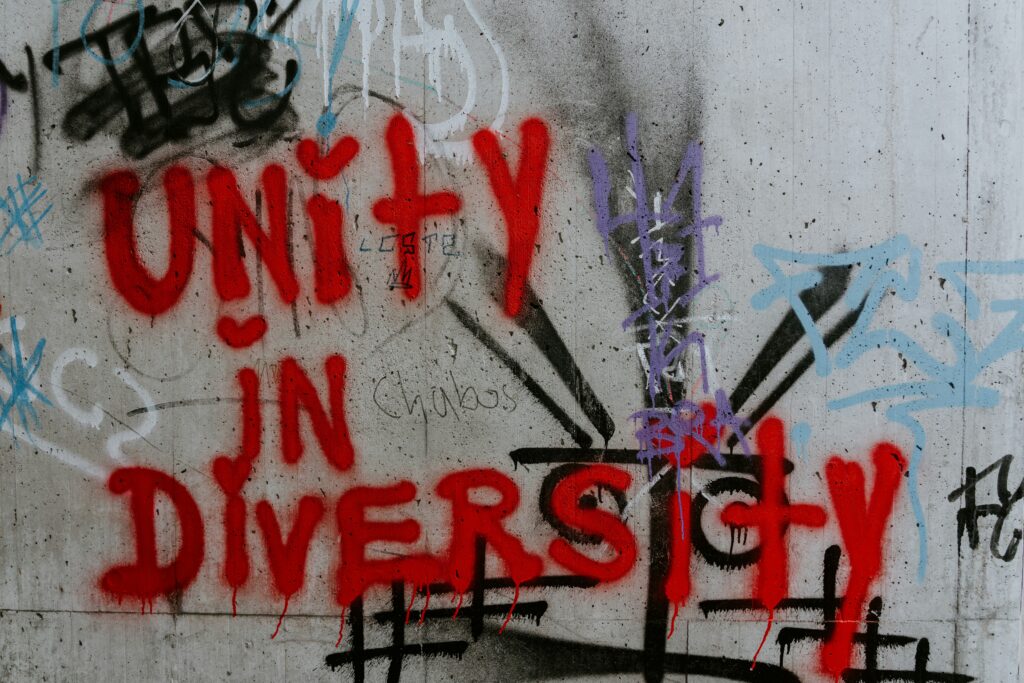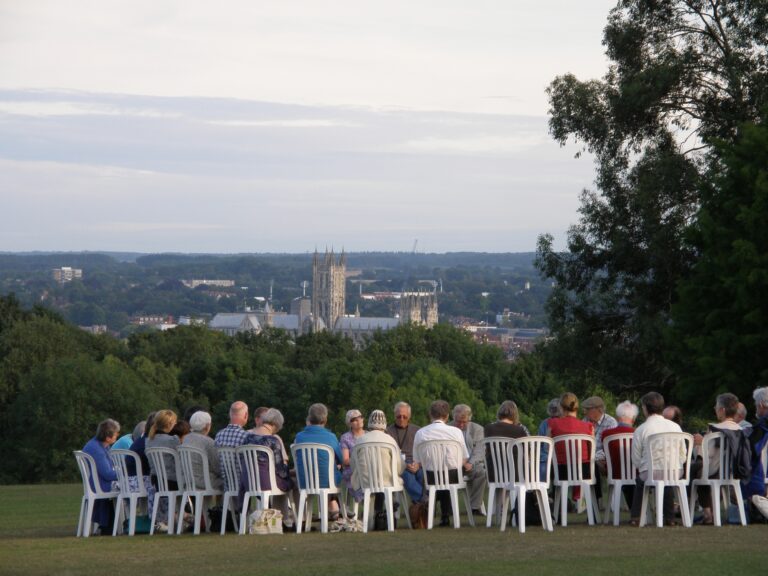Unity does not mean Unanimity so what does it mean?
Unity is not the absence of conflict. In fact, when conflict is handled well it promotes unity. Insisting on Unanimity as being the same as or better than Unity makes things hard.
Merriam-Webster defines unity as the “the quality or state of not being multiple, or oneness.”
While unanimity is defined as “having the agreement and consent of all“.

Our search is for unity, not unanimity. We consider ourselves to be in unity when we share in the search for Truth, when we listen faithfully for God, when we submit our wills to the guidance of Spirit, and when our love for one another is constant.
Philadelphia Yearly Meeting Tweet
When you are saying everyone must agree or be the same – you are looking for unanimity.
Unanimity on one level makes sense – it is why corporate branding and company scripts exist after all. If you go to work for a fast food restaurant they will supply you with a uniform, so you look the same, and a script, so you sound the same.
However, such outwardly enforced unanimity is false. Internally people will believe and think differently.
Why do Quakers find unity rather than focusing on unanimity.
As the quote above says, we are aware that we can all agree on a testimony but how we choose to live out our lives to that testimony is different.
This year’s Yearly Meeting focused on the multitude of ways that people live out their testimony to peace. Some are activists, some are researchers, or writers, or facilitators or diplomats. While others focus on how they live their lives at home and work, living peacefully.
George Fox, who gave us the definition of a peacemaker and who would not fight in the armies of the Commonwealth, believed that Friends in the West Indies might serve in the watchtowers to give notice of the approach of an enemy fleet.
Alongside those who served with the Friends Ambulance Unit, there were Quakers who enlisted, and some who refused to do anything to support the war.
Some of the things I value most about my Quaker faith is the reminder that I may be mistaken, that we can all learn from each other, and that each of us adds something to the understanding of us all. We would lose so much by insisting that we all worshiped, acted, and believed the same. It is the edges and those who can cause discomfort that challenge us and ensure we revisit our beliefs and actions regularly.
“One of the truly wonderful things about the Quaker process of trying to discern the sense of the meeting is a willingness to take no action, even when there is only one voice that can’t come into unity with others. In those instances, a decision may be deferred with the expectation that all parties will consider the issue further and hopefully come back later and reach agreement. But I have also experienced situations where this was not the case, and complete unity could not be achieved on an issue that was essential for a meeting to address. Such a situation tests the commitment of the community to its individual members—which may involve a long period of struggle to discern a way forward—and the commitment of an individual member to participate in that struggle and remain a part of the community. There are times when such struggles may not result in agreements, in which case it is important to remember that sense of the meeting does not mean unanimity.”
John Andrew Galley, Friends Journal article: Meeting for Business as Spiritual Rehearsal


Lives can stand in for beliefs. To find our collective identity as Quakers we can look to our shared lives. Membership does not have to signify that we hold the same beliefs but can simply be a recognition of the place of the meeting in the life of the individual, and of the individual in the life of the meeting. All this seems paradoxical because we have thought of unity of belief as the path to unity of action, but Quakers know that unity does not require unanimity. Quaker unity is larger than that.
Osborn Cresson Friends Journal 'On Quaker Unity' Tweet

Wendrie Heywood
MBS Founder
The MBS blog has a decade’s worth of inspiration, advice and musings from our team.
Why not search through our categories and tags to see what we have to say on the topic you’ve chosen?
You might also like...

Quaker A-Z: Q is for Quakerly
What does Quakerly mean? I dislike Quakerly as a adjective. It is usually used in

Quaker A-Z: U is for Unfair Business
What do we mean by unfair business? Quakers traditionally are associated with fair business practices

Quaker A-Z: T is for Together
Being Surprised I love Yearly Meeting and go whenever it is possible. I find that






